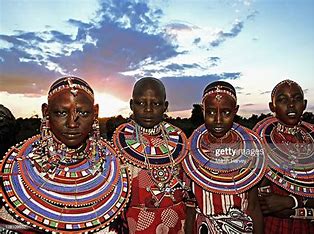
Conservationists in Kenya have embarked on a programme to empower pastoralist women economically as part of ongoing efforts to resolve the frequent human-wildlife conflicts in national parks and other wildlife sanctuaries.
Against this backdrop, 60 women from the local Maasai community in Amboseli, Kenya, are on track to graduating from a trailblazing project that aims transform them into wildlife champions. In recent years, Kenya has recorded a surge in wildlife poaching with the elephant, lions, leopard and rhinos targeted for trophies that end up in black markets Middle East and Far East Asia.
The women are part of Jenga Mama (Swahili for Empower a Woman) – an initiative developed by IFAW (International Fund for Animal Welfare) and the German Foundation Margarete-Breuer-Stiftung (MBS). Jenga Mama is a three-year vocational training programme to equip women with the tools to set up microenterprises and set up reliable sources of income for their families and communities.
“I am convinced that everyone will benefit from this initiative, not only the people and the local community but also nature and wildlife,” said Robert Kless, Country Director for IFAW in Germany.
The 60 women from the Maasai community graduated this week after their first year of vocational training. They will now learn how to establish a business over 12 months and complete the programme with a year of mentorship.
“Empowering women is a big step for every society. We at MBS are proud to support these 60 Maasai women on their personal growth path because we know that they will not stop (growing after they graduate),” says Peter Dehnen, chairman of MBS.
IFAW and MBS started the programme to help women – who are usually on the receiving end of human-wildlife conflict incidents that have become too frequent, given their daily duties of fetching firewood and water and herding livestock – become champions for wildlife instead.
“Ladies are always lowered and their dignity is always down, especially amongst the Maasai community,” says Janet Sabore, one of the participants of the initiative who studied plumbing at the Maasai Technical Training Institute (MTTI) in Kenya.
“Where I come from, we do not have many plumbers, and I will be receiving many calls for plumbing work. I am guaranteed a source of income.”
Helping women find more sustainable sources of income gives them more significant opportunities to speak up against poaching and human-wildlife conflict and participate in decision-making with local community leaders.
IFAW believes supporting local communities living with wildlife is critical to success in wildlife conservation. Wildlife spends over 70 per cent of their time in community lands where they interact with people, primarily women. It is vital that the community is engaged in meaningful ways to promote coexistence and associate socio-economic development with wildlife.
Habitat loss and land degradation from climate change and urbanization continue to increase human-wildlife conflict. But innovation such as the Jenga Mama initiative ensures that people living closest to wildlife protect the animals from threats.
- A Tell report











